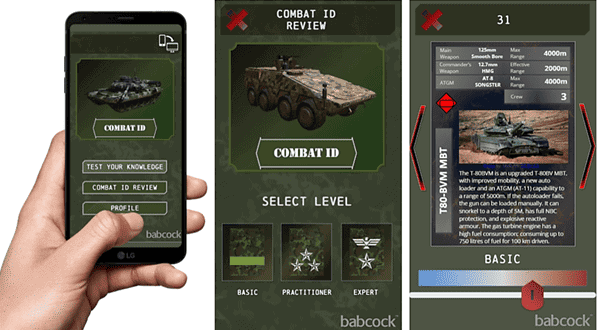We’re pleased to have recently won a contract to provide the British Army with a unique e-learning package that enables soldiers to recognise allied and threat battlefield vehicles and helicopters, and gain critical insights into the capabilities of these key land and air platforms.
With extensive experience of designing and delivering threat training in support of the Army’s Land Warfare Centre, our training business produced a successful concept demonstrator for the Combined Arms Manoeuvre School, when we were then selected as the provider.
The final package is hosted on the Defence Learning Environment (DLE) and is accessible on all desktop and mobile devices.
Jo Rayson, Managing Director of our training business said: “This package supports a vital defence requirement for the Army to be able to recognise and identify key threat and friendly vehicles and helicopters, to know the capabilities of those platforms and in doing so understand the threat posed by each, as well as what the presence of the platform signifies.
“The package provides photographs and information about numerous armoured vehicles and battlefield helicopters, including data on weapon ranges and their use, as well as a super-realistic 3D 360⁰ model that enables the user to view the platform from any angle and distance. This is particularly useful as battlefield identification is often based on a view from a drone.”
Named the Virtual Recognition Trainer (VRT), the package is available for c.100,000 users across the British Army and includes a comprehensive self-test function which can be tailored to specific user groups. Additional platforms and enhancements, such as thermal view and highlighting vulnerable target areas, can be added to the package as part of the contract.
Captain Jake Cox RRF, Operations Officer at the Army’s Combined Arms Manoeuvre School, said: “Babcock’s innovative virtual recognition trainer provides the Army with an adaptable learning tool, supporting the requirement for soldiers to differentiate between friend and foe and know these platform capabilities.”
The software collects data to assist with product improvement and provides the customer with objective insights into usage, pass rates and individual progress.

